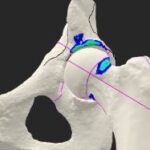This coming January will mark the one-year anniversary of the Miami Cancer Institute. The $430 million, 445,000 sq. ft. facility has rapidly grown in volume since its inception and is now seeing up to 850 unique patients a day. Its radiation therapy unit is also seeing far beyond its anticipated number of patients.
.jpg) “We’ve had a great response in terms of volume,” said founding CEO and Executive Medical Director Michael J. Zinner, MD. “We intentionally started slowly because at the same time that we opened our doors, we were also implementing a new electronic medical records (EMR) system.”
“We’ve had a great response in terms of volume,” said founding CEO and Executive Medical Director Michael J. Zinner, MD. “We intentionally started slowly because at the same time that we opened our doors, we were also implementing a new electronic medical records (EMR) system.”The Miami Cancer Institute, part of Baptist Health South Florida, offers all services that cancer patients need in one place. “To the best of my knowledge, we are the only place in North America, maybe even the western hemisphere, that has every radiation therapy device available to treat patients under one roof,” said Dr. Zinner. “There are five or six types of devices to treat different types of tumors, and our staff is trained on all of them.
“Instead of adapting patients to the equipment we have, we make sure that we have the best piece of equipment to treat the patient,” he added.
When the Institute first opened its doors, approximately 40 patients a day were being treated with radiation therapy at South Miami Hospital, and 40 at Baptist Hospital. “We figured that we would get a bump of 80 to 90 patients, but we now have 120 patients undergoing radiation therapy, which is well ahead of expectations,” said Dr. Zinner. “We have people coming from as far away as Palm Beach County.”
One of the reasons for this influx of patients may be the institute’s ability to offer complex techniques to treat cancer, including proton therapy. “We spent the last 1-1/2 years getting ready for this very highly technical equipment to come online, and we saw our first patient at the end of November,” said Dr. Zinner. “Our first delivery unit, which is being used to treat pediatric and adult solid tumor cancer patients, already has a waiting list of 50 to 60 patients. We’ll bring the second unit online in January 2018, and the third online in April 2018.”
The main advantage of proton therapy is that instead of damaging surrounding tissue when treating a tumor, it is able to deliver almost all of its energy to the tumor site. “This is very important when treating children because damage to surrounding tissue can stunt the growth of the patient or their organs,” said Dr. Zinner. “It is also used to treat spinal tumors, where affecting the spinal cord can cause paralysis.”
According to Dr. Zinner, there are only 25 of these units in the country, and only six of the kind that the Institute has, featuring the very latest technology. This has not only attracted interest from the South Florida market, but also Latin America countries, where the technology is not available.
“We believe that there may be opportunities in the very new future for some of these patients to come to us,” said Dr. Zinner, adding that the Institute has chosen to offer proton therapy at the same level of pricing as conventional, complex traditional therapy, despite the fact that many places charge two to three times the cost of traditional radiation therapy.
In December, the Institute also opened its new 90,000 sq. ft. research building, which contains a bone marrow transplant unit, clinical trials unit, and genomic medicine testing lab. It will be open to patients after the first of the year, with bone marrow transplants beginning in January or February of 2018.
“One of the things that I’m most proud of is the talent that we have recruited to our facility,” said Dr. Zinner. “We’ve hired experts from all over the country, including the senior myeloma and transplant physician at Memorial Sloan Kettering, a renowned endocrine surgeon from the clinical department of surgery at Yale, a clinical breast cancer surgeon from Boston University and a senior pancreatic cancer physician from the University of Chicago, among many others.”
As Florida’s only member of the Memorial Sloan Kettering Cancer Alliance, Dr. Zinner adds that patients can receive the same standard of care as can be found at that hospital, as well as take part in many of the same clinical trials.
“We have patients who could go to Sloan Kettering, but choose to come here,” he added. “I am heartened by that, because we want to be recognized not only as a place that treats cancer, but that makes a significant difference in patients’ lives through our high-tech and high-touch facility.”

























